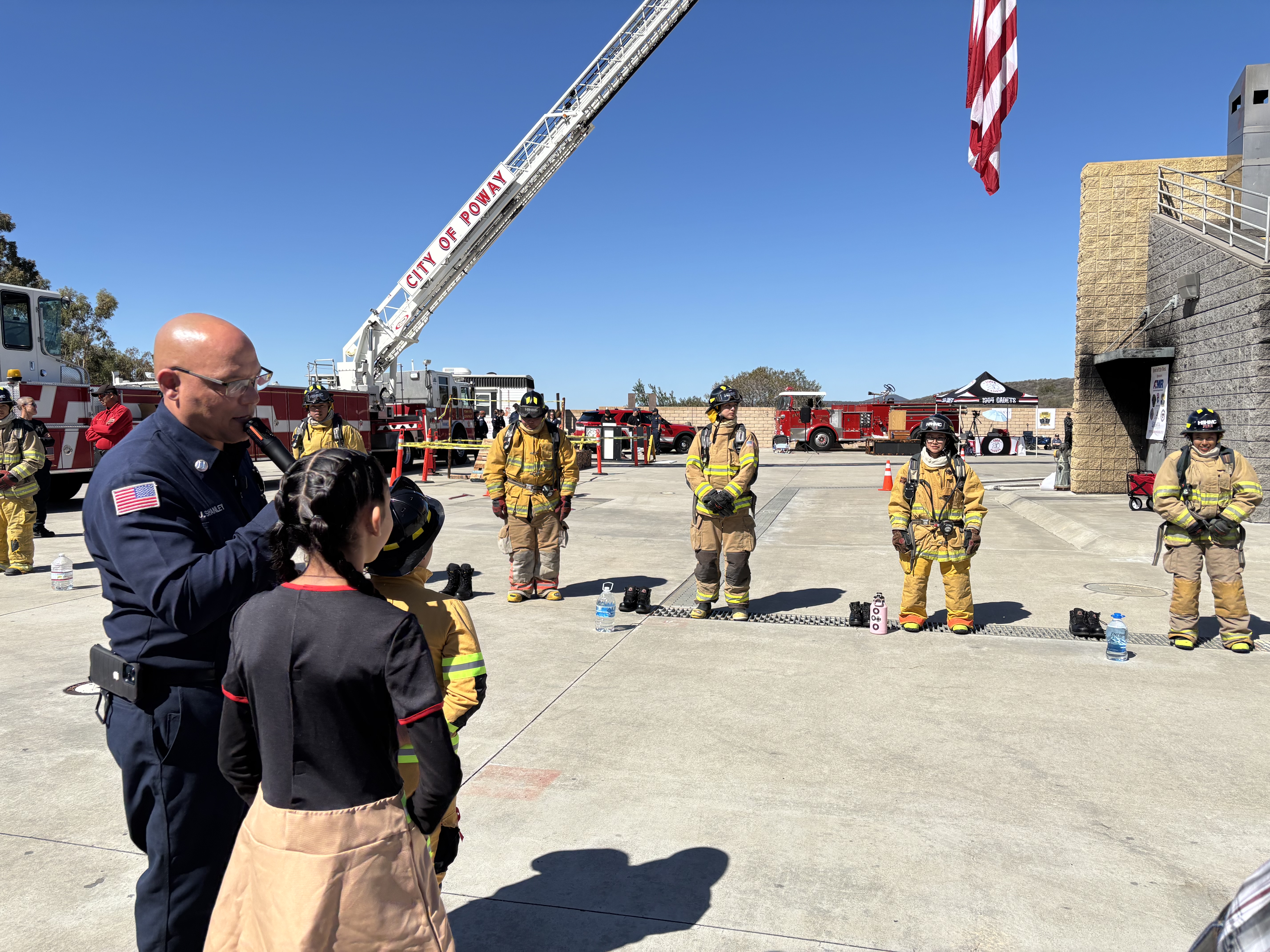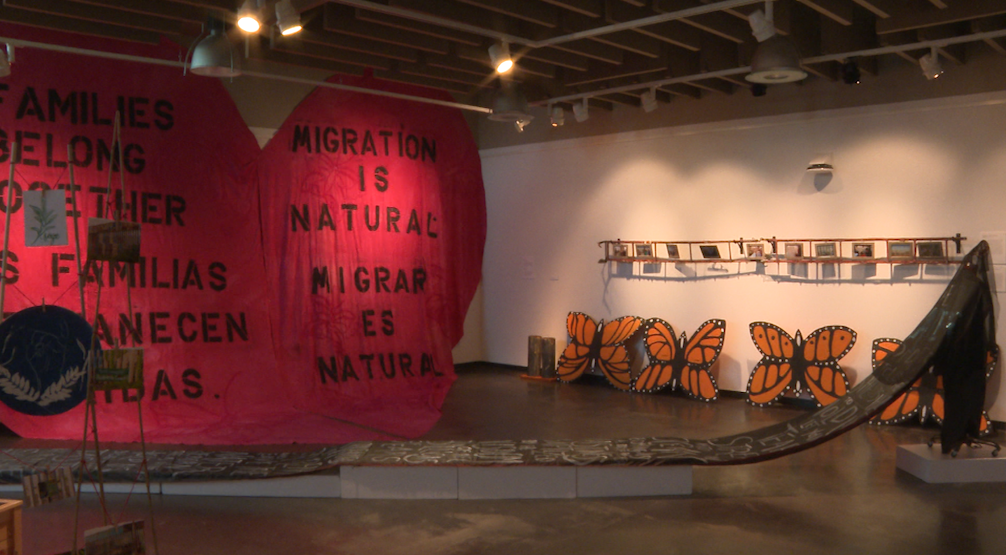California Congressman Darrell Issa has been working to bring home San Diegans still stranded in Afghanistan. NBC 7’s Mark Mullen reports.
What to Know
- At one point, there were at least 8 San Diego-area families stranded in Afghanistan during the Taliban's violent takeover, all with children who go to school in the Cajon Valley Union School District in east San Diego County
- The school district and Congressman Darrell Issa -- whose district includes El Cajon -- said the families began making their way back home the week of Aug. 23, little by little
- The families had traveled separately to the country to visit extended family over the summer break but got stuck during the chaos of the Taliban's takeover of Kabul
One of the San Diego-area families stranded in Afghanistan – which includes three students who go to school in El Cajon – was not able to make it out of the country as U.S. troops finished their withdrawal.
The students who are part of that family go to schools in the Cajon Valley Union School District in east San Diego County. CVUSD spokesperson Howard Shen said Tuesday that the district is “exploring strategies to rescue and bring them home.”
Get top local stories in San Diego delivered to you every morning. Sign up for NBC San Diego's News Headlines newsletter.
“The safe return of our Cajon Valley family and raising awareness of the more than 20,000 ‘invisible Americans’ according to our Family and Community Liaisons is our focus now,” Shen said via email. “Our employees and rescued families estimate that more than 1,000 children who are either U.S. citizens or the children of SIVs are still trapped in Afghanistan.”
In all, the CVUSD and Congressman Darrell Issa – whose district includes central and northeastern parts of San Diego County, including El Cajon – identified at least eight Cajon Valley families last week who were stranded in Afghanistan amid the chaos.
Shen said Tuesday that four of those families were now safely back home in El Cajon. Those families include seven adults and 14 students in the district. Some of those students were even able to return to school on Monday to what Shen said were “the open arms of their teachers and classmates.”
Local
Shen said two other Cajon Valley families were in the U.S. Tuesday, flying home to San Diego County. Another family is safely out of Afghanistan, he said, and also on their way home to the U.S.
On Tuesday, Rep. Issa told NBC 7 his office has been in contact with around five families in or near Kabul, Afghanistan, who are sheltered in place in what appear to be, for now, safe-havens.
"Two of the family units got through the checkpoints but were not extracted. After multiple attempts, they went back home. We’re now looking for alternate ways to get these individuals out," Issa said.
Now that U.S. military and State Department personnel have left the country, Issa said there is no easy way to extract the families. The system for extraction, which included documentation and verification with the State Department, broke down over the last few days, according to Issa.
Families were getting to checkpoints and doing everything necessary, while also, in some cases, being shot at, beaten or otherwise threatened, but weren’t able to get out, Issa said.
“We’re dealing with some tough situations and some very traumatized individuals and doing what we can to stay in touch with them, but it’s a very fluid situation," he added.
Issa said he expects El Cajon to receive thousands of Afghan refugees because of the city's existing Afghan population and ties to the region.
"I know that San Diegans will do everything they can to help those who have helped us," he said.
San Diego Students Stranded in Afghanistan: What Happened Last Week?
Aug. 30, 2021:
The CVUSD said some more of the students of the families who had been stranded in Afghanistan were safely back home in east San Diego and were even able to return to school on Monday.
Aug. 27, 2021:
Late last week, two of the CUVSD families were en route to San Diego from Afghanistan, Congressman Darrell Issa's office said. Those two families included seven people – three adults and four children.
On Aug. 27, Issa’s office said those two families marked six El Cajon-area families that had been evacuated from Kabul since the Taliban takeover. Across those first four San Diego-area families, there were seven adults and 16 children.
“We believe that most of the 20 total children are enrolled in school within the Cajon Valley Union School District, although exact numbers are not known at this time,” a press release from Issa’s office said last week.
“This has been an around-the-clock operation, and individuals inside of government and outside of it deserve our deepest thanks. But more members of our community still need our help. The mission is to bring our people home, and we will continue to do it,” Issa said last week.
The CVUSD and Issa's office worked together last week to keep track of the CVUSD families stranded in Afghanistan.
The district confirmed last week that the families of the students – who attend various schools in the Cajon Valley area – had reported the kids wouldn’t be able to start the school year on Aug. 17 because the kids and their parents were in Afghanistan, unable to get out of the Kabul airport.
CVUSD said counseling was available on school sites for students having difficulty processing the situation, students with questions about the impact of the crisis in Afghanistan on their missing classmates.
"The Cajon Valley Family And Community Engagement Department is ready and able to support Cajon Valley families and connect them to needed resources," CVUSD continued in its statement. "Cajon Valley Union School District Community and Staff wait with open arms for the safe return of all of our families."
The families had traveled separately to Afghanistan for summer vacations to see their grandparents, cousins, and other relatives. Most of the families came to the United States on a special immigrant visa after having worked for the U.S. government or U.S. military in Afghanistan, officials said. The visa allows only the person and their spouse and children.
Many of the families left in early May and June, months before the crisis unfolded and the president of Afghanistan fled as the Taliban seized power, officials said.
“Just like you and I, they had used the summer to go back to see their relatives," CVUSD Superintendent David Miyashiro told the AP last week. “No one felt that were going to be unsafe or unable to return.”
The superintendent said the families are particularly scared because of the upcoming Aug. 31 deadline for the United States to end its withdrawal.
Issa spoke with NBC 7 throughout last week about the importance of getting the local families out of Afghanistan -- especially before the Biden Administration's Aug. 31 deadline to withdraw U.S. troops from the country.
“This could end at any time and that is one of the reasons we are trying to get them out,” Issa told NBC 7 San Diego on Wednesday night. “We don’t want any Americans to be one of those people clinging to the helicopter at the end.”
Aug. 26, 2021:
On Aug. 26, the Pentagon confirmed there had been an explosion outside Kabul airport that ended with casualties, further throwing the U.S. evacuation efforts into turmoil. The initial blast outside the airport’s Abbey Gate resulted in a number of U.S. and civilian casualties, Pentagon spokesman John Kirby said on Twitter.
Officials confirmed Thursday that 13 U.S. service members had been killed in the Kabul attack. Many of those service members were stationed at Camp Pendleton in San Diego County.
In an emotional speech from the White House, U.S. President Joe Biden said the Aug. 26 bloodshed would not drive the U.S. out of Afghanistan earlier than scheduled.
“We will not forgive. We will not forget. We will hunt you down and make you pay,” Biden said.
Aug. 25, 2021:
On Aug. 25, one of the San Diego area families – six local students and their mom and dad – were able to safely return to Southern California, a liaison working with the families told NBC 7.



